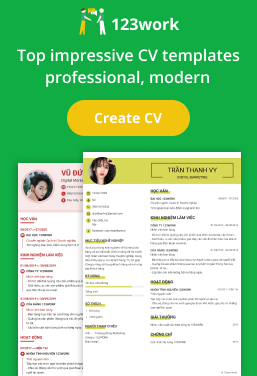Benefits of Working at WWF-Canada
You’ll work with a team of passionate people interested in creating a Canada with abundant wildlife, where nature and people thrive. Here are some other benefits of working here:
- Competitive salary
- Health and dental benefits
- Paid vacation time and personal days
- Training and development budget to support your professional goals
- Flexible working arrangements and telecommuting
Overview
About WWF-Canada
WWF-Canada is a national conservation organization with an instantly recognizable brand and hundreds of thousands of supporters as well as Indigenous, academic, community and corporate partners from all regions of the country. As part of a global network, we have a half century history of fighting to strengthen and protect Canadian nature. Our vision is: A Canada with abundant wildlife, where nature and people thrive.
WWF-Canada has a long history of conservation success in Canada, none of which would have been possible without Indigenous and local communities, all orders of government, corporate, donor, academic and research institutions. With our ambitious new 10-year Regenerate Canada plan WWF-Canada commits fearlessly and determinedly to protect and conserve Canada’s nature and wildlife and the communities that rely on them.
WWF-Canada has a long history of working on conservation issues in Nunavut directly supporting community priorities and collaborative research. With Inuit communities, we helped define “The Last Ice Area”, an ecologically rich and culturally significant region in the eastern Arctic that scientists project sea ice will persist the longest in the face of a warming world. In 2019, we contributed to the work of the Qikiqtani Inuit Association, to make Tuvaijuittuq an interim Marine Protected Area with an impact benefit agreement that delivers on their promise of a conservation economy. This will ensure that communities will benefit culturally and economically from protecting this marine area, a significant part of the Last Ice Area.
Position Description
The Specialist, Arctic Conservation is a highly motivated individual that supports WWF’s partnership building in the North towards community-led conservation of Arctic marine and terrestrial ecosystems. The conservation of Arctic habitats and wildlife is a key aspect of WWF-Canada’s Strategic Plan, targeted to deliver by 2030.
The incumbent will play a part in the organizational efforts to promote community conservation priorities, advocate for the creation of resilient marine and terrestrial protected areas, increase collective knowledge of the threats that face Arctic ecosystems and prioritize opportunities to invest in successful conservation efforts. The role will primarily support Inuit-led marine protection as Canada works toward meeting its commitment to conserve 30% of its marine areas by 2030. This role blends networking, research, partnership building, and project management to assist the Senior Manager, Arctic Marine Conservation, and the Resilient Habitats team in conservation planning with Northern partners, including communities, industry, academia and governments.
ᐆᒪᔪᓄᑦ ᐱᐅᖅᓱᐊᖅᑏᑦ ᓯᓚᕐᔪᐊᒥ ᑲᓇᑕ
ᐆᒪᔪᓄᑦ ᐱᐅᖅᓱᐊᖅᑏᑦ ᓯᓚᕐᔪᐊᒥ ᑲᓇᑕ ᓴᐳᒻᒥᑦᑎᓂᕐᒧᑦ ᑲᑐᔾᔨᖃᑎᒌᖑᔪᖅ ᐃᓕᓴᕆᔭᐅᑦᑕᐅᑎᒋᔭᖅᑐᓂ ᖃᓄᐃᑦᑑᓂᖓ ᐊᒻᒪ ᕼᐊᓐᓇᓚ ᑕᐅᓴᖏᓐᓃᑦᑐᓂᑦ ᐃᑲᔪᖅᑎᖃᖅᑐᓂ ᐊᒻᒪᓗᑦᑕᐅᖅ ᓄᓇᖃᖅᑳᖅᓯᒪᔪᑦ, ᐃᓕᓐᓂᐊᓂᕐᒧᑦ, ᓄᓇᓕᒻᒧᑦ ᐊᒻᒪ ᑯᐊᐳᕇᓴᓄᑦ ᐱᓕᕆᖃᑎᖏᓐᓄᑦ ᐊᕕᑦᑐᖅᓯᒪᔪᓕᒫᓂᑦ ᑲᓇᑕᒥ. ᐃᓚᒋᓪᓗᓂᐅᒃ ᓯᓚᕐᔪᐊᒥ ᑲᑎᓐᖓᖃᑦᑕᐃᑎᔪᓂᑦ, ᓇᑉᐸᖏᓐᓂ ᕼᐊᓐᓇᓚᓂ ᐊᕐᕌᒍᓂ ᐊᔭᐅᖅᑐᐃᓯᒪᔪᒍᑦ ᓴᓐᖓᑦᑎᒋᐊᖅᑐᒋᑦ ᐊᒻᒪ ᓴᐳᒻᒥᓪᓗᒋᑦ ᑲᓇᑕᒥ ᓄᓇᖓ ᐃᒪᖓ. ᑕᑯᓐᓇᖅᑕᕗᑦ: ᑲᓇᑕ ᐊᒥᓱᓂᑦ ᐆᒪᔪᖃᐅᖅᑐᖅ, ᓄᓇᖓ ᐃᒪᖓ ᐊᒻᒪ ᐃᓄᐃᑦ ᑲᔪᖏᖅᓯᒪᓂᖃᑦᑎᐊᖅᑐᑎᑦ.
ᐆᒪᔪᓄᑦ ᐱᐅᖅᓱᐊᖅᑏᑦ ᓯᓚᕐᔪᐊᒥ ᑲᓇᑕ ᐱᓕᕆᖃᑦᑕᖅᓯᒪᒻᒪᕆᑦᑐᑦ ᓴᐳᒻᒥᑦᑎᓂᕐᒧᑦ ᑲᔪᓯᑦᑎᐊᖅᓯᒪᔪᓂᑦ ᑲᓇᑕᒥ, ᓇᓪᓕᐊᑐᐃᓐᓇᖅ ᑕᐃᒪᐃᒍᓐᓇᕋᔭᓚᐅᖏᑦᑐᑦ ᐱᑕᖃᖏᑉᐸᑕ ᓄᓇᖃᖅᑳᖅᓯᒪᔪᑦ ᐊᒻᒪ ᓄᓇᓖᑦ, ᑎᓕᓯᔾᔪᑎᓕᒫᑦ ᒐᕙᒪᒃᑯᓐᓂᑦ, ᑯᐊᐳᕇᓴᓂ, ᑐᓂᓯᑐᐃᓐᓇᖅᑐᑦ, ᐃᓕᓐᓂᐊᓂᕐᒧᑦ ᐊᒻᒪ ᖃᐅᔨᓴᓂᕐᒧᑦ ᐱᓕᕆᕕᐅᔪᑦ. ᐱᔪᒪᔭᑦᑎᓐᓄᑦ ᓄᑖᑦ 10ᕝᐊᕐᕌᒍᓄᑦ ᐆᒻᒪᖅᑎᑕᐅᒃᑲᓂᕐᓗᓂ ᑲᓇᑕ ᐸᕐᓇᐅᑦ ᐆᒪᔪᓄᑦ ᐱᐅᖅᓱᐊᖅᑏᑦ ᓯᓚᕐᔪᐊᒥ ᑲᓇᑕ ᑲᔪᖏᖅᓯᒪᔪᑦ ᑲᑉᐱᐊᓱᖏᓪᓗᑎ ᐊᒻᒪ ᑲᔪᖏᖅᓯᒪᓗᑎ ᓴᐳᒻᒥᓗᒋᑦ ᐊᒻᒪ ᐱᐅᖅᓱᐊᕐᓗᒋᑦ ᑲᓇᑕᒥ ᓄᓇᖓ ᐃᒪᖓ ᐊᒻᒪ ᐆᒪᔪᐃᑦ ᐊᒻᒪ ᓄᓇᓖᑦ ᑐᓐᖓᕕᒋᔭᖏᓐᓄᑦ.
ᐃᑲᔪᖅᑐᑦ. ᐅᑭᐅᑕᖅᑐᒥ, ᐃᖅᑲᓇᐃᔭᖃᑎᒋᓂᕆᔭᕗᑦ ᐃᓄᓐᓂᑦ ᓄᓇᓕᓐᓂᑦ ᐊᒻᒪᓗᑦᑕᐅᖅ ᖃᐅᔨᓴᖅᑎᓄᑦ ᖃᐅᔨᓴᖅᑕᐅᓯᒪᔪᑦ ᐱᔪᓐᓇᑎᑦᑎᔪᑦ ᐅᕙᑦᑎᓐᓂ ᓇᓗᓇᐃᕐᓗᒍ “ᑭᖑᓪᓕᖅᐹᖅ ᓯᑯᖃᕐᕕᖓ”, ᐊᕙᑎᓕᕆᓂᕐᒧᑦ ᐱᑕᖃᒻᒪᕆᑦᑐᑦ ᐊᒻᒪ ᐱᖅᑯᓯᓄᑦ ᐱᒻᒪᕆᐅᔪᑦ ᐊᕕᑦᑐᖅᓯᒪᔪᖅ ᑲᓇᓐᓇᖓᓂ ᐅᑭᐅᑕᖅᑐᒥ ᖃᐅᔨᓴᖅᑏᑦ ᓯᑯᖃᐃᓐᓇᓂᐊᖅᑐᒋᔭᖓ ᐊᑯᓂᐅᓛᒥ ᐅᖅᑰᓯᕙᓪᓕᐊᔪᒥᑦ ᓯᓚᕐᔪᐊᒥᑦ. 2019 ᒥᑦ, ᕿᑭᖅᑕᓂ ᐃᓄᐃᑦ ᑲᑐᔾᔨᖃᑎᒌᖏᑦ, ᐃᖅᑲᓇᐃᔭᖃᑎᖃᖅᑐᑎ ᒐᕙᒪᒃᑯᓐᓂᑦ ᑲᓇᑕᒥ ᐊᒻᒪ ᓄᓇᕗᑦ, ᑐᑭᒧᐊᖅᑎᑦᑎᓚᐅᖅᑐᑦ ᑐᕙᐃᔪᐃᑦᑐᖅ ᒫᓐᓇᐅᔪᒧᑦ ᐃᒪᖅ ᓴᐳᒻᒥᔭᐅᔪᖅ ᐊᑦᑐᖅᑕᐅᓂᖏᓐᓄᑦ ᐃᑲᔫᓯᐊᓂ ᐊᖏᕈᑎᖃᖅᑐᑎᑦ ᑐᓂᓯᔪᑦ ᓱᓕᓂᐊᕐᓂᕋᖅᓯᒪᔭᖓᓂ ᓴᐳᒻᒥᑦᑎᓂᕐᒧᑦ ᑮᓇᐅᔭᓂᓕᕆᓂᕐᒧᑦ, ᑕᒪᓐᓇ ᓇᓗᓇᐃᖅᓯᓂᐊᖅᑐᖅ ᑖᒃᑯᐊ ᓄᓇᓖᑦ ᐃᑲᔫᓯᐊᕐᓗᑎ ᐱᖅᑯᓯᑎᒍᑦ ᐊᒻᒪ ᑮᓇᐅᔭᓕᕆᓂᑦᑎᒍᑦ ᐱᓕᕆᐊᖑᓂᖓᓄ ᑕᒪᓐᓇ ᐃᒪᖅ, ᐊᖏᔪᒥᑦ ᐃᓚᒋᔭᖓ ᑭᖑᓪᓕᖅᐹᖅ ᓯᑯᖃᕐᕕᖓ.
ᐆᒪᔪᓄᑦ ᐱᐅᖅᓱᐊᖅᑏᑦ ᓯᓚᕐᔪᐊᒥ ᑲᓇᑕ ᐱᖅᑯᓯᑐᖃᖃᖅᑐᑦ ᐃᖅᑲᓇᐃᔭᓂᕐᒧᑦ ᓴᐳᒻᒥᑦᑎᓂᕐᒧᑦ ᐃᓱᒫᓘᑕᐅᔪᓂᑦ ᓄᓇᕗᒻᒥ ᐃᑲᔪᕐᓂᖃᖅᑐᑎ ᓄᓇᓕᒻᒧᑦ ᓯᕗᓪᓕᐅᔾᔭᐅᔭᕆᐊᓖᑦ ᐊᒻᒪ ᐱᓕᕆᖃᑎᒌᓐᓂᕐᒥᑦ ᖃᐅᔨᓴᓂᕐᒥᑦ. ᐃᓄᐃᑦ ᓄᓇᓕᖏᓐᓂ, ᐃᑲᔪᓚᐅᖅᑐᒍᑦ ᓇᓗᓇᐃᖅᑐᒍ “ᑭᖑᓪᓕᖅᐹᖅ ᓯᑯᖃᕐᕕᖓ”, ᐊᕙᑎᓕᕆᓂᕐᒧᑦ ᐱᑕᖃᒻᒪᕆᑦᑐᑦ ᐊᒻᒪ ᐱᖅᑯᓯᓄᑦ ᐱᒻᒪᕆᐅᔪᑦ ᐊᕕᑦᑐᖅᓯᒪᔪᖅ ᑲᓇᓐᓇᖓᓂ ᐅᑭᐅᑕᖅᑐᒥ ᖃᐅᔨᓴᖅᑏᑦ ᓯᑯᖃᐃᓐᓇᓂᐊᖅᑐᒋᔭᖓ ᐊᑯᓂᐅᓛᒥ ᐅᖅᑰᓯᕙᓪᓕᐊᔪᒥᑦ ᓯᓚᕐᔪᐊᒥᑦ. 2019 ᒥᑦ, ᐃᑲᔪᓚᐅᖅᑐᒍᑦ ᐃᖅᑲᓇᐃᔭᖅᑕᖏᓐᓄᑦ ᕿᑭᖅᑕᓂ ᐃᓄᐃᑦ ᑲᑐᔾᔨᖃᑎᒌᖏᑦ, ᑐᕙᐃᔪᐃᑦᑐᖅ ᒫᓐᓇᐅᔪᒧᑦ ᐃᒪᖅ ᓴᐳᒻᒥᔭᐅᔪᖅ ᐊᑦᑐᖅᑕᐅᓂᖏᓐᓄᑦ ᐃᑲᔫᓯᐊᓂ ᐊᖏᕈᑎᖃᖅᑐᑎᑦ ᑐᓂᓯᔪᑦ ᓱᓕᓂᐊᕐᓂᕋᖅᓯᒪᔭᖓᓂ ᓴᐳᒻᒥᑦᑎᓂᕐᒧᑦ ᑮᓇᐅᔭᓂᓕᕆᓂᕐᒧᑦ, ᑕᒪᓐᓇ ᓇᓗᓇᐃᖅᓯᓂᐊᖅᑐᖅ ᑖᒃᑯᐊ ᓄᓇᓖᑦ ᐃᑲᔫᓯᐊᕐᓗᑎ ᐱᖅᑯᓯᑎᒍᑦ ᐊᒻᒪ ᑮᓇᐅᔭᓕᕆᓂᑦᑎᒍᑦ ᐱᓕᕆᐊᖑᓂᖓᓄ ᑕᒪᓐᓇ ᐃᒪᖅ, ᐊᖏᔪᒥᑦ
ᐃᖅᑲᓇᐃᔮᒧᑦ ᓇᓗᓇᐃᔭᖅᓯᒪᓂᖏᑦ
ᖃᐅᔨᒪᑎᑕᖅ, ᐅᑭᐅᑕᖅᑐᒥ ᓴᐳᒻᒥᑦᑎᓂᕐᒧᑦ ᑲᔪᖏᖅᓯᒪᑦᑎᐊᖅᑐᖅ ᐃᑲᔪᖅᑐᓂ ᐆᒪᔪᓄᑦ ᐱᐅᖅᓱᐊᖅᑏᑦ ᓯᓚᕐᔪᐊᒥ ᑲᓇᑕ ᐱᓕᕆᖃᑎᒌᓕᐅᓂᕐᒥᑦ ᐅᑭᐅᑕᖅᑐᒥ ᑐᕌᖅᑐᓂ ᓄᓇᓕᒻᒧᑦ ᑐᑭᒧᐊᖅᑎᑕᐅᔪᑦ ᓴᐳᒻᒥᑦᑎᓂᕐᒧᑦ ᐅᑭᐅᑕᖅᑐᒥ ᐃᒪᖓᓂ ᐊᒻᒪ ᓄᓇᖓᓂ ᐊᕙᑎᖓᓂ. ᓴᐳᒻᒥᔭᐅᓂᖏᑦ ᐅᑭᐅᑕᖅᑐᒥ ᐆᒪᔪᓄᑦ ᓇᔪᖅᑕᐅᕙᑦᑐᑦ ᐊᒻᒪ ᐆᒪᔪᐃᑦ ᐃᓚᒋᓪᓗᐊᑕᖅᑕᖓ ᐆᒪᔪᓄᑦ ᐱᐅᖅᓱᐊᖅᑏᑦ ᓯᓚᕐᔪᐊᒥ ᑲᓇᑕ ᐊᑐᖅᑕᐅᓂᐊᖅᑐᓂ ᐸᕐᓇᐅᒻᒥ. ᑐᕌᕐᓂᖃᖅᑐᑦ ᑐᓂᔭᐅᓗᑎ 2030.
ᐃᖅᑲᓇᐃᔮᑖᖅᑐᖅ ᐃᖅᑲᓇᐃᔭᕐᓂᐊᖅᑐᖅ ᐃᓚᒋᖓᓂ ᑲᑐᔾᔨᖃᑎᒌᒧᑦ ᐱᓇᓱᐊᖅᑕᐅᔪᓂᑦ ᓴᖅᑭᔮᖅᑎᑦᑎᓗᑎ ᓄᓇᓕᒻᒧᑦ ᓴᐳᒻᒥᑦᑎᓂᕐᒧᑦ ᓯᕗᓪᓕᐅᔾᔭᐅᔭᕆᐊᓖᑦ, ᐃᑲᔪᖅᑐᐃᓗᓂ ᓴᖅᑭᖅᑎᑕᐅᓂᖓᓄᑦ ᓴᖏᔪᒥᑦ ᐃᒪᖓᓂ ᐊᒻᒪ ᓄᓇᖓᓂ ᓴᐳᒻᒥᔭᐅᔪᓂᑦ, ᖁᕝᕙᕆᐊᖅᑎᑦᑎᔪᑦ ᖃᐅᔨᒪᓂᐅᔪᓂᑦ ᐊᑦᑕᓇᕈᑎᐅᔪᑦ ᐅᑭᐅᑕᖅᑐᒧ ᐊᕙᑎᖓᓄ ᐊᒻᒪ ᓯᕗᓪᓕᐅᔾᔨᑎᑦᑎᓪᓗᑎ ᐱᕕᔅᓴᐅᔪᓐᓇᖅᑐᓂ ᐱᓕᕆᑎᑦᑎᓂᕐᒥᑦ ᑲᔪᓯᓂᖃᑦᑎᐊᖅᑐᓂ ᓴᐳᒻᒥᑦᑎᓇᓱᐊᓂᕐᒥᑦ. ᐱᓕᕆᒋᐊᓕᖏᑦ ᐃᑲᔪᕐᓗᓂ ᐃᓄᓐᓄᑦ ᑐᑭᒧᐊᖅᑎᑕᐅᔪᑦ ᐃᒪᕐᒥ ᓴᐳᒻᒥᑦᑎᓂᕐᒥᑦ ᑲᓇᑕ ᐱᓕᕆᐊᖃᖅᐸᓪᓕᐊᑎᓪᓗᒍ ᑎᑭᑦᑎᓂᕐᒥᑦ ᑲᔪᖏᖅᓯᒪᔭᖏᓐᓂ ᓴᐳᒻᒥᑦᑎᓗᑎ 30% ᐃᒪᖏᓐᓂ ᐅᓇᐅᓕᖅᑎᓪᓗᒍ 2030. ᑖᓇ ᐱᖠᕆᒋᐊᓕᖓ ᐃᓚᒋᔭᐅᓂᖃᖅᑐᖅ ᑲᑎᓐᖓᔪᓄᑦ, ᖃᐅᔨᓴᓂᕐᒧᑦ, ᐱᓕᕆᖃᑎᒌᓕᐅᓂᕐᒥᑦ, ᐊᒻᒪ ᐱᓕᕆᐊᒥᑦ ᐊᐅᓚᑦᑎᓂᕐᒥᑦ ᐃᑲᔪᕐᓗᒍ ᐊᖏᔪᖅᑳᖅ ᐊᓪᓚᑦᑎ, ᐅᑭᐅᖅᑐᒥ ᐃᒪᖏᑦ ᓴᐳᒻᒥᔭᐅᓂᖏᓐᓄᑦ, ᐊᒻᒪ ᓴᖏᔫᓂᖏᓐᓄᑦ ᐆᒪᔪᓄᑦ ᓇᔪᖅᑕᐅᕙᑦᑐᓄᑦ ᐱᖠᕆᔩᑦ ᓴᐳᒻᒥᑦᑎᓂᕐᒧᑦ ᐸᕐᓇᐃᓂᕐᒥᑦ ᐅᑭᐅᑕᖅᑐᒥ ᐱᓕᕆᖃᑎᖏᓐᓂ, ᐱᖃᓯᐅᑎᓪᓗᑎ ᓄᓇᓖᑦ, ᐱᓕᕆᕕᑦ, ᐃᓕᓐᓂᐊᕐᓂᓕᕆᔩᑦ ᐊᒻᒪ ᒐᕙᒪᐃᑦ.
Responsibilities
- In conjunction with communities, Inuit or government partners, support the implementation of community-led or community-supported conservation initiatives (e.g. protected and conserved areas; support for guardian programs; community-based monitoring) that contribute to WWF-Canada’s goals.
- Respond to requests for support from Nunavut community representatives as needed.
- Develop and maintain good working relations and ensure regular respectful two-way flow of information with key organizations and agencies including, but not limited to: Hunters and Trappers Organizations, Hamlet Councils, the Government of Nunavut, Inuit organizations, co-management boards, federal government agencies operating in the North, and others.
- Identify partnership opportunities that are aligned with WWF-Canada’s objectives.
- Research and prepare submissions and/or advice for assessments, policy development, and planning processes led by government and Inuit agencies.
- Negotiate and create contracts, agreements, funding arrangements etc. with partners and external consultants as needed.
- Act as a liaison between other WWF staff and northern stakeholders, as necessary.
- Engage in research, consultation, and technical work supporting conservation planning, with a particular focus on marine conservation planning.
- Contribute to the implementation of projects related to WWF’s marine protected areas network planning work.
- Contribute, collaborate, and draw expertise from, the conservation planning efforts of WWF’s international team of Arctic conservation experts, on an occasional basis.
- Ensure that WWF-Canada’s relevant positions, views and achievements are effectively and accurately communicated to key stakeholders.
- Prepare written materials (blogs, fact sheets, web texts, reports) for public distribution as needed to support communications efforts.
- Represent WWF-Canada at meetings, conferences, workshops.
ᐃᓚᒋᔭᐅᑎᓪᓗᒋᑦ ᓄᓇᓖᑦ, ᐃᓄᐃᑦ ᐅᕙᓘᓐᓃᑦ ᒐᕙᒪᒃᑯᓐᓂ ᐱᓕᕆᖃᑎᖏᑦ, ᐃᑲᔪᕐᓗᒍ ᐊᑐᓕᖅᑎᑕᐅᓂᖓ ᓄᓇᓕᒻᒧᑦ ᑐᑭᒧᐊᖅᑎᑕᐅᔪᑦ ᐅᕝᕙᓘᓐᓃᑦ ᓄᓇᓕᒻᒧᑦ ᐃᑲᔪᖅᑕᐅᔪᑦ ᓴᐳᒻᒥᑦᑎᓂᕐᒧᑦ ᐱᓕᕆᐊᑦ (ᓲᕐᓗ ᓴᐳᒻᒥᔭᐅᔪᑦ ᐊᒻᒪ ᐱᐅᖅᓱᐊᖅᑕᐅᔪᑦ ᓇᒦᓐᓂᖏᑦ, ᐃᑲᔪᕐᓗᓂ ᓴᐳᒻᒥᑦᑎᔨᓄᑦ ᐱᓕᕆᐊᓂᑦ; ᓄᓇᓕᒻᒧᑦ ᐊᐅᓚᑕᐅᔪᖅ ᖃᐅᔨᓴᖃᑦᑕᕐᓂᖅ) ᐃᑲᔪᕐᓂᖃᖅᑐᑦ ᐅᑯᓄᖓ ᐆᒪᔪᓄᑦ ᐱᐅᖅᓱᐊᖅᑏᑦ ᓯᓚᕐᔪᐊᒥ
- ᑲᓇᑕ ᑐᕌᒐᖏᓐᓄᑦ.
- ᑭᐅᓗᓂ ᑐᔅᓯᕋᐅᑎᓄᑦ ᐃᑲᔪᕐᓗᓂ ᓄᓇᕗᒻᒥ ᓄᓇᓕᒻᒧ ᑭᒡᒐᖅᑐᐃᔨᓂᑦ ᐱᔭᐅᔭᕆᐊᖃᕋᐃᑉᐸᑦ.
- ᓴᖅᑭᑎᑦᑎᓗᓂ ᐊᒻᒪ ᐱᓯᒪᑦᑎᓗᓂ ᐱᐅᔪᒥ ᐃᖅᑲᓇᐃᔭᖃᑎᖃᓂᕐᒥᑦ ᐊᒻᒪ ᓇᓗᓇᐃᕐᓗᒍᒍ ᐃᑉᐱᒍᓱᑦᑎᐊᕐᓂᖅ ᒪᕐᕉᓐᓂ ᐃᖏᕋᓂᖃᖅᒻᑐᓂ ᑐᑭᓯᒋᐊᕈᑎᓂᑦ ᑲᑐᔾᔨᖃᑎᒌᓪᓗᐊᑕᐅᔪᓄᑦ ᐊᒻᒪ ᑎᒥᐅᔪᓄᑦ ᐱᖃᓯᐅᑎᓪᓗᑎ, ᑭᓯᐊᓂ ᑭᓪᓕᒋᖏᑕᖏᑦ ᐅᑯᓂᖓ: ᐆᒪᔪᕐᓂᐊᑎᒃᑯᑦ ᑲᑐᔾᔨᖃᑎᒌᖏᑦ, ᕼᐊᒻᒪᓚᒃᑯᑦ ᑲᑎᒪᔨᖏᑦ, ᓄᓇᕗᑦ ᒐᕙᒪᒃᑯᑦ, ᐃᓄᐃᑦ ᑲᑐᔾᔨᖃᑎᒌᑦ, ᐊᐅᓚᑦᑎᖃᑎᒌᓐᓂᕐᒧᑦ ᑲᑎᒪᔩᑦ, ᒐᕙᒪᑐᖃᒃᑯᓐᓂ ᑎᒥᐅᔪᑦ ᐊᐅᓚᓂᖃᖅᑐᑦ ᐅᑭᐅᑕᖅᑐᒥ, ᐊᒻᒪ ᐊᓯᖏᑦ. ᓇᓗᓇᐃᕐᓗᒋᑦ ᐱᓕᕆᖃᑎᒌᕝᕕᔅᓴᐅᔪᓐᓇᖅᑐᑦ ᓇᓕᒧᓐᓂᖃᖅᑐᑦ ᐆᒪᔪᓄᑦ ᐱᐅᖅᓱᐊᖅᑏᑦ ᓯᓚᕐᔪᐊᒥ
- ᑲᓇᑕᒥ ᑐᕌᒐᖏᓐᓄᑦ.
- ᖃᐅᔨᓴᓂᕐᒧᑦ ᐊᒻᒪ ᑎᑎᕋᕐᓗᓂ ᑐᓂᔭᐅᔪᓂᑦ ᐊᒻᒪ/ᐅᕝᕙᓘᓐᓃᑦ ᐅᖃᐅᔾᔨᒋᐊᕐᓗᓂ ᖃᐅᔨᓴᕐᓂᐅᔪᓄᑦ, ᐊᑐᐊᒐᕐᒥ ᐱᕙᓪᓕᐊᑎᑦᑎᓂᕐᒥᑦ, ᐊᒻᒪ ᐸᕐᓇᐃᓂᕐᒧᑦ ᐱᕙᓪᓕᐊᓂᖏᑦ ᑐᑭᒧᐊᖅᑎᑕᐅᔪᑦ ᒐᕙᒪᒃᑯᓐᓄᑦ ᐊᒻᒪ ᐃᓄᐃᑦ ᑎᒥᖏᓐᓄᑦ.
- ᐋᔩᖃᑎᖃᕐᓗᓂ ᐊᓐ ᑳᓐᑐᕌᓕᐅᕐᓗᓂ, ᐊᖏᕈᑎᓂᑦ, ᑮᓇᐅᔭᖃᖅᑎᑕᐅᓂᕐᒧ ᐋᖅᑭᑦᑕᐅᓂᖏᓐᓄᑦ ᐊᓯᖏᓪᓗ. ᐱᓕᕆᖃᑎᖏᓐᓂᓪᓗ ᐊᒻᒪ ᓯᓚᑖᓃᖔᖅᑐᑦ ᐅᖃᐅᔾᔨᒋᐊᖅᑏᑦ ᐱᔭᐅᔭᕆᐊᖃᖅᑎᓪᓗᒋᑦ.
- ᖃᐅᔨᒋᐊᕐᕕᐅᓗᓂ ᐅᑯᓇᓂ ᐊᓯᐊᓂ ᐆᒪᔪᓄᑦ ᐱᐅᖅᓱᐊᖅᑏᑦ ᓯᓚᕐᔪᐊᒥ ᐃᖅᑲᓇᐃᔭᖅᑏᑦ ᐊᒻᒪ ᐅᑭᐅᑕᖅᑐᒥ ᑎᒍᒥᐊᖅᑎᐅᖃᑕᐅᔪᑦ, ᐱᑕᖃᕆᐊᖃᖅᑎᓪᓗᒍ.
- ᐃᓚᒋᓗᐅᓗᓂ ᖃᐅᔨᓴᓂᕐᒥᑦ, ᐅᖃᐅᔾᔨᒋᐊᓂᕐᒥᑦ ᐊᒻᒪ ᓇᓗᓇᐃᔭᖅᓯᒪᔭᕆᐊᓕᓐᓂᑦ ᐃᖅᑲᓇᐃᔮᖑᔪᓄᑦ ᐃᑲᔪᖅᑐᑦ ᓴᐳᒻᒥᑦᑎᓂᕐᒧᑦ ᐸᕐᓇᐃᓂᕐᒧᑦ, ᐱᓕᕆᐊᖃᓗᐊᖅᑐᓂ ᐃᒪᕐᒥ ᓴᐳᒻᒥᑦᑎᓂᓕᕐᒧᖅᑦ ᐸᕐᓇᐃᓂᕐᒥᑦ.
- ᑐᓂᓯᓗᓂ ᐊᑐᓕᖅᑎᑕᐅᓂᖏᓐᓄᑦ ᐱᓕᕆᐸᑦ ᐊᑦᑐᐊᓂᓖᑦ ᐆᒪᔪᓄᑦ ᐱᐅᖅᓱᐊᖅᑏᑦ ᓯᓚᕐᔪᐊᒥ ᐃᒪᕐᒥ ᓴᐳᒻᒥᔭᐅᔪᓄᑦ ᓇᒦᓐᓂᖏᑦᑲᑎᓐᖓᔪᓂᑦ ᐸᕐᓇᐃᓂᕐᒧᑦ ᐃᖅᑲᓇᐃᔮᒥᑦ.
- ᑐᓂᓯᓗᓂ, ᐱᓕᕆᖃᑎᖃᕐᓗᓂ, ᐊᒻᒪ ᓴᖅᑭᑎᑦᑎᓗᓂ ᖃᐅᔨᒪᓂᐅᔪᓂᑦ ᐅᕙᓐᖓᑦ, ᓴᐳᒻᒥᑦᑎᒥᓂᕐᒧᑦ ᐸᕐᓇᐃᓂᕐᒧᑦ ᐱᓇᓱᐊᖅᑕᐅᔪᑦ ᐆᒪᔪᓄᑦ ᐱᐅᖅᓱᐊᖅᑏᑦ ᓯᓚᕐᔪᐊᒥ ᓯᓚᕐᔪᐊᒥ ᐃᖅᑲᓇᐃᔭᑎᑦ ᐅᑭᐅᑕᖅᑐᒥ ᓴᐳᒻᒥᑦᑎᓂᕐᒧᑦ ᖃᐅᔨᒪᓂᖃᖅᑐᑦ, ᐃᓛᓐᓂᒃᑰᖃᑦᑕᖅᑐᖅ. ᓇᓗᓇᐃᕐᓗᒋᑦ ᑖᒃᑯᐊ ᐆᒪᔪᓄᑦ ᐱᐅᖅᓱᐊᖅᑏᑦ ᓯᓚᕐᔪᐊᒥ
- ᑲᓇᑕᒥ ᐊᑦᑐᐊᓂᓕᓐᓄᑦ ᐃᖅᑲᓇᐃᔮᓄᑦ, ᑕᑯᓐᓇᖅᑕᐅᔪᑦ ᐊᒻᒪ ᑎᑭᑕᐅᓯᒪᔪᑦ ᐊᐅᓚᓂᖃᑦᑎᐊᖅᑐᑎ ᐊᒻᒪ ᐱᑦᑎᐊᖅᓯᒪᓪᓗᑎ ᓱᓴᐅᒪᔾᔪᑕᐅᓪᓗᑎ ᑎᒍᒥᐊᖅᑎᐅᖃᑕᐅᔪᓄᑦ.
- ᑎᑎᕋᖃᑦᑕᕐᓗᓂ (ᐅᖃᐅᓯᔅᓴᐃᑦ, ᐱᓪᓚᕆᐅᔪᓂ ᑎᑎᕋᕐᕕᑦ, ᐃᕐᖏᓐᓈᕈᑎᒃᑯᑦ ᑎᑎᕋᖅᑕᐅᔪᑦ, ᐅᓂᒃᑳᑦ) ᑭᒃᑯᑐᐃᓐᓇᕐᓄᑦ ᑐᓂᐅᖅᑲᖅᑕᐅᔪᑦ ᐱᔭᐅᔭᕆᐊᖃᖅᑎᓪᓗᒋᑦ ᐃᑲᔪᕐᓗᑎ ᑐᓴᐅᒪᔾᔪᑎᓕᕆᓂᕐᒧᑦ\.
- ᑭᒡᒐᑐᕐᓗᒋᑦ ᐆᒪᔪᓄᑦ ᐱᐅᖅᓱᐊᖅᑏᑦ ᓯᓚᕐᔪᐊᒥ ᑲᑎᒪᓂᐅᔪᓂᑦ. ᑲᑎᒪᕕᔾᔪᐊᕐᓂᐅᔪᓂᑦ, ᐃᓕᓐᓂᐊᓯᓐᓈᕐᓂᐅᔪᓂᑦ.
Qualifications
- 4 to 6 years combined relevant education and/or career experience Resource Management, Conservation biology, Environmental Studies, Community Development, or other relevant study/work areas.
- Knowledge of and experience working with Inuit and governmental agencies and decision-making structures in Nunavut.
- Previous experience providing technical support related to planning resource use and conservation issues.
- Previous experience delivering community-based conservation projects, preferably in the Canadian Arctic.
- Proven ability to work collaboratively with diverse partners in project design and management.
- Self-starter, able to work independently and demonstrate flexibility and patience.
- Familiarity with Inuktitut is an asset.
- Identify & align with WWF’s core values: Courage, Integrity, Respect, and Collaboration.
- 4 ᑎᑭᑦᑐᒍ 6 ᐊᕐᕌᒍᓂ ᑲᑎᓐᖓᔪᓂᑦ ᐊᑦᑐᐊᓂᓕᓐᓂᑦ ᐃᓕᓐᓂᐊᖅᓯᒪᓂᖓ ᐊᒻᒪ/ᐅᕝᕙᓘᓐᓃᑦ ᐃᖅᑲᓇᐃᔭᖅᓯᒪᓂᖓ ᑭᓱᓕᕆᔾᔪᑎᓂᑦ ᐊᐅᓚᑦᑎᓂᕐᒧᑦ, ᓴᐳᒻᒥᑦᑎᓂᕐᒧᑦ ᐆᒪᔪᓂ ᖃᐅᔨᓴᓂᕐᒧᑦ, ᐊᕙᑎᑭᓕᕆᓂᕐᒧᑦ ᐃᓕᓐᓂᐊᕐᓂᐅᔪᑦ, ᓄᓇᓕᒻᒥᑦ ᐱᕙᓪᓕᐊᑎᑦᑎᓂᖅ, ᐅᕝᕙᓘᓐᓃᑦ ᐊᓯᖏᑦ ᐊᑦᑐᐊᓂᓖᑦ ᐃᓕᓐᓂᐊᖅᓯᒪᔭᖏᑦ/ᐃᖅᑲᓇᐃᔭᖅᓯᒪᔭᖏᑦ.
- ᖃᐅᔨᒪᓂᖃᕐᓗᓂ ᐊᒻᒪ ᐃᖅᑲᓇᐃᔭᖃᑦᑕᖅᓯᒪᓗᓂ ᐃᓄᓐᓄᑦ ᐊᒻᒪ ᒐᕙᒪᒃᑯᓐᓄᑦ ᑎᒥᐅᔪᓂᑦ ᐊᒻᒪ ᐃᓱᒪᓕᐅᓂᕐᒧᑦ ᓴᓇᓯᒪᓂᖏᑦ ᓄᓇᕗᒻᒥ.
- ᐃᖅᑲᓇᐃᔭᖃᑦᑕᖅᓯᒪᓗᓂ ᓇᓗᓇᐃᔭᖅᓯᒪᓂᖏᓐᓄᑦ ᐃᑲᔪᖅᑎᐅᓗᓂ ᐊᑦᑐᐊᓂᓕᓐᓄᑦ ᐸᕐᓇᐃᓂᕐᒧᑦ ᑭᓱᓕᕆᔾᔪᑏᑦ ᐊᑐᖅᑕᐅᓂᖏᓐᓄᑦ, ᐊᒻᒪ ᓴᐳᒻᒥᑦᑎᓂᕐᒧᑦ ᐃᓱᒫᓘᑕᐅᔪᑦ.
- ᐃᖅᑲᓇᐃᔭᖃᑦᑕᖅᓯᒪᓗᓂ ᑐᓂᓯᓂᕐᒧᑦ ᓄᓇᓕᒻᒧᑦ ᐊᐅᓚᑕᐅᔪᓂᑦ ᐱᓕᕆᐊᓂᑦ, ᐱᔭᐅᖔᕈᒪᔪᑦ ᑲᓇᑕᒥ ᐅᑭᐅᑕᖅᑐᒥ.
- ᓇᓗᓇᐃᖅᓯᓯᒪᓗᓂ ᐃᖃᖅᑲᓇᐃᔭᕈᓐᓇᕐᓗᑎ ᐱᓕᕆᖃᑎᖃᕐᓗᓂ ᐊᔾᔨᒌᖏᑦᑐᓂᑦ ᐱᓕᕆᖃᑎᖏᓐᓂᑦ ᐱᓕᕆᐊᒧᑦ ᓴᓇᓯᒪᓂᖓᓄᑦ ᐊᒻᒪ ᐊᐅᓚᑕᐅᓂᖓᓄᑦ.
- ᐃᒻᒥᓂᒃ ᐱᒋᐊᖅᑎᐅᓗᓂ, ᐃᓄᑑᓗᓂ ᐃᖅᑲᓇᐃᔭᕈᓐᓇᕐᓗᓂ ᐊᒻᒪ ᑕᑯᔅᓴᐅᑎᑦᑎᓗᓂ ᖃᓄᐃᓕᒍᓐᓇᓂᕐᒧᑦ ᐊᒻᒪ ᐅᑕᖅᑭᑦᑎᐊᕈᓐᓇᓂᕐᒧᑦ.
- ᖃᐅᔨᒪᓂᖃᕐᓂᖓ ᐃᓄᑦᑎᑐᑦ ᐱᑕᖃᕆᐊᖃᖅᑎᑕᐅᔪᖅ.
Other Information
- This is a Full-Time, Contract to March 17, 2025
- Note safe travel will be determined by following the guidelines of Federal, Territorial and Provincial governments and following consultation with Indigenous communities.
- Starting Salary Range: $60,000 to $65,000
- ᓇᓗᓇᐃᕈᑦ ᐊᑦᑕᓇᖏᑦᑐᒥ ᐊᐅᓪᓚᕐᓂᖅ ᓇᓗᓇᐃᖅᑕᐅᓂᐊᖅᑐᒃ ᒪᓕᓪᓗᒋᑦ ᐊᑐᒐᐃᑦ ᒐᕙᒪᑐᖃᒃᑯᓐᓄᑦ, ᐅᑭᐅᑕᖅᑐᒧᑦ ᐊᒻᒪ ᑲᓇᑕᒥ ᐊᕕᑦᑐᖅᓯᒪᔪᓄᑦ ᐊᒻᒪ ᒪᓕᓐᓂᖃᕐᓂ ᖃᑎᒪᖃᑎᖃᓂᕐᒥᑦ ᓄᓇᖃᖅᑳᖅᓯᒪᔪᓂᑦ ᓄᓇᓕᓐᓂᑦ.
Deadline to Apply
If you are interested in applying for this exciting opportunity, please click
Commitment to Diversity and Accessibility
Our vision is a Canada with abundant wildlife where nature and people thrive and we value and rely on diversity of thought, knowledge, expertise, and lived experience to help bring our vision to life.
We recognize that experience comes in many forms and skills are transferable. If you feel that your unique experiences can enhance our vision, we encourage you to apply – even if you don’t meet 100% of the requirements.
We encourage applications from candidates who have been historically disadvantaged and marginalized, including applicants who identify as First Nations, Métis or Inuk (Inuit), Black, racialized, a person with a disability, women and/or 2SLGBTQ+.
We are committed to a barrier-free and equitable recruitment & selection process. If you are contacted in relation an opportunity to join our team and require an accommodation at any point in the process, please advise the recruiter of your specific needs. We commit to managing these requests in a confidential manner.


